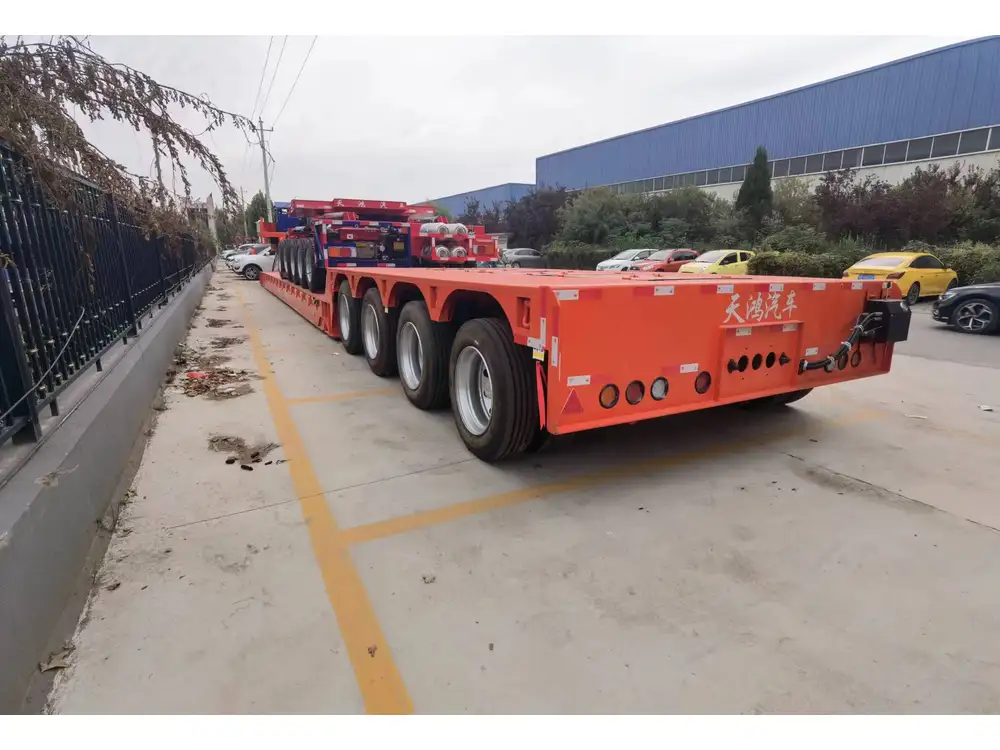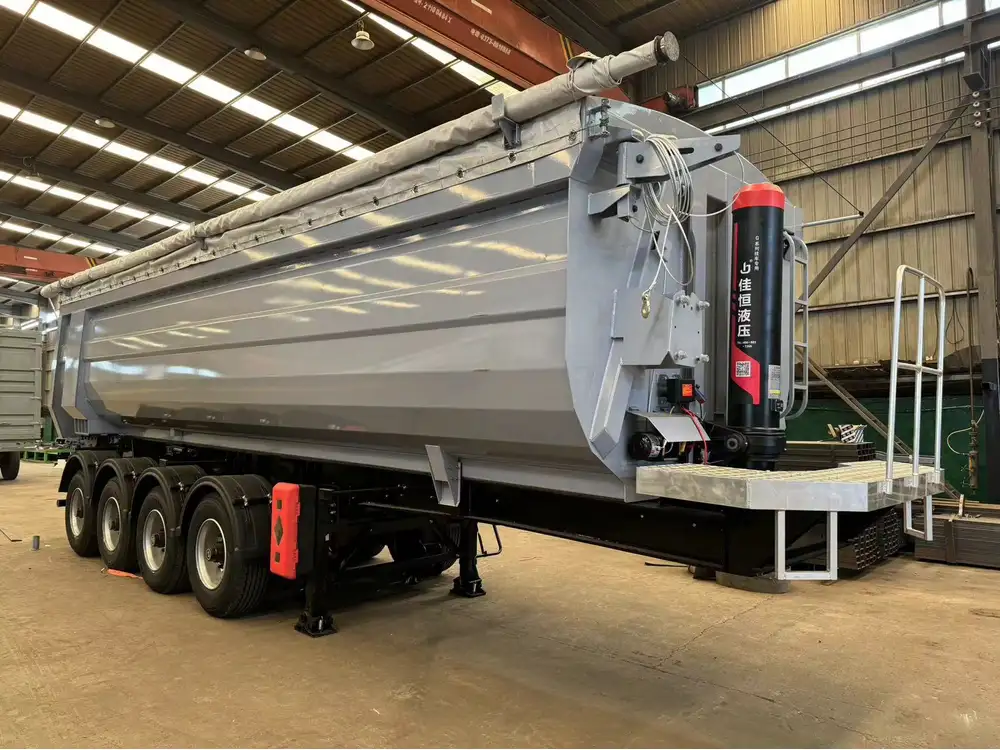Understanding the fuel capacity of gas trucks is essential for fleet operators and logistics managers. It influences operational efficiency, cost management, and overall productivity. In this article, we delve deep into the intricacies of gas truck fuel capacities, shedding light on various factors that impact these metrics, and offering you the knowledge you need to optimize your fleet’s performance.
What Is a Gas Truck?
Gas trucks, commonly referred to as fuel trucks, are specialized vehicles designed primarily for transporting fuel, including gasoline, diesel, or other petroleum products. Their design ensures safety, compliance with regulatory standards, and efficiency during fuel distribution processes.
Types of Gas Trucks
Gas trucks can be categorized based on several aspects:
Size and Capacity:
- Light-Duty Gas Trucks: Typically hold between 1,200 to 2,500 gallons.
- Medium-Duty Gas Trucks: Operate within a range of 2,500 to 6,500 gallons.
- Heavy-Duty Gas Trucks: Can hold anywhere from 6,500 gallons up to 12,000 gallons or more.
Design:
- Single Compartment Tanks: Ideal for transporting one type of fuel without mixture concerns.
- Multi-Compartment Tanks: Allow for the transportation of various fuel types, optimizing logistics further.
Tank Configuration:
- Cylindrical Tanks: Common for storage to minimize the surface area and reduce evaporation.
- Rectangular Tanks: Offer efficient space utilization in the truck chassis.

Fuel Capacity: A Closer Look
The fuel capacity of gas trucks is often affected by several elements, including:
| Factor | Impact on Capacity |
|---|---|
| Vehicle Size | Larger vehicles can generally carry more fuel. |
| Tank Design | The shape and material of the tank influence capacity. |
| Local Regulations | Limitations on carrying capacity can vary by location. |
| Safety Standards | Compliance with safety regulations may limit usable capacity. |
| Weight Restrictions | Trucks must adhere to gross vehicle weight limits, impacting how much fuel they can carry. |
Standard Gallons Across Different Models
Understanding the typical gallon capacities for different truck models aids in selecting the right vehicles for your fleet. Here’s a summarized comparison of common gas truck models:
| Truck Type | Typical Gallon Capacity |
|---|---|
| Light-Duty Gas Truck | 1,200 – 2,500 gallons |
| Medium-Duty Gas Truck | 2,500 – 6,500 gallons |
| Heavy-Duty Gas Truck | 6,500 – 12,000 gallons |
Calculating Fuel Needs
Fuel efficiency is paramount in fleet operations. To determine fuel needs, consider the vehicle’s mileage and fuel capacity:
- Identify Mileage: Know the average distance your trucks travel per day.
- Monitor Fuel Efficiency: Record the gallons used over the miles traveled to calculate miles per gallon (MPG).
- Calculate Daily Requirements: [ \text{Daily Fuel Requirement} = \frac{\text{Total Distance}}{\text{Average MPG}} ]

Importance of Fuel Capacity in Fleet Management
Addressing fuel capacity isn’t merely an operational detail; it has far-reaching implications on your fleet management strategies:
- Maximizing Efficiency: A well-chosen gas truck integrates seamlessly into supply chain operations, reducing the number of trips required, thereby saving time and money.
- Budgeting and Forecasting: Accurate fuel capacity information aids in budgeting for fuel expenditures and planning for fuel purchases ahead of time, helping to stabilize cash flow.
- Operational Compliance: Understanding fuel limits helps ensure compliance with local and state regulations regarding transportation limitations.
Common Questions About Gas Truck Capacities
How does the design of a gas truck’s tank affect fuel capacity?
- The shape, material, and configuration of the tank play a significant role in how much fuel can be stored, impacting overall operational efficiency.
What regulations affect the maximum fuel capacity of gas trucks?
- Various safety and environmental regulations limit fuel transport, including weight restrictions and local transport laws.
Are there variations in capacity based on fuel type?
- Yes, different fuels have different density levels, which can impact how much fuel can legally and practically be transported.
What maintenance practices ensure optimal fuel truck capacity?
- Regular inspections, adhering to safety standards, and using high-quality materials for tanks will ensure longevity and efficiency.
The Future of Gas Trucks in Fleet Operations
As the logistics industry evolves, so too do gas trucks. Innovations are continually changing how fuel is transported and managed. Fleet operators should stay ahead of these developments:

Technological Advancements
- Telematics Systems: Integrating telematics allows for better monitoring of fuel usage, real-time tracking, and predictive maintenance.
- Alternative Fuels: As the shift toward sustainability increases, consider gas trucks that can utilize alternative fuels, potentially expanding your fleet’s operational scope.
Emerging Trends
- Smart Fuel Management: Implement systems that streamline fuel purchasing, reporting, and consumption analysis to improve decision-making processes.
- Electrification Initiatives: While traditional gas trucks dominate today, the gradual introduction of electrification in larger vehicles will reshape the industry.
Conclusion
In summary, understanding how many gallons a gas truck holds is paramount for those engaged in transportation and logistics. The effectiveness of a fleet relies on strategic decisions regarding logistics planning, fuel management, and regulatory compliance. By recognizing the intricacies and variables associated with gas truck capacities, fleet operators can enhance efficiency, reduce costs, and ultimately drive their businesses forward. No matter the size of your fleet or the nature of your operations, informed choices about gas truck capacities lead to better outcomes and increased profitability.
Invest time in understanding and optimizing your fleet’s fuel capabilities; doing so will pay dividends in your journey towards operational excellence.



